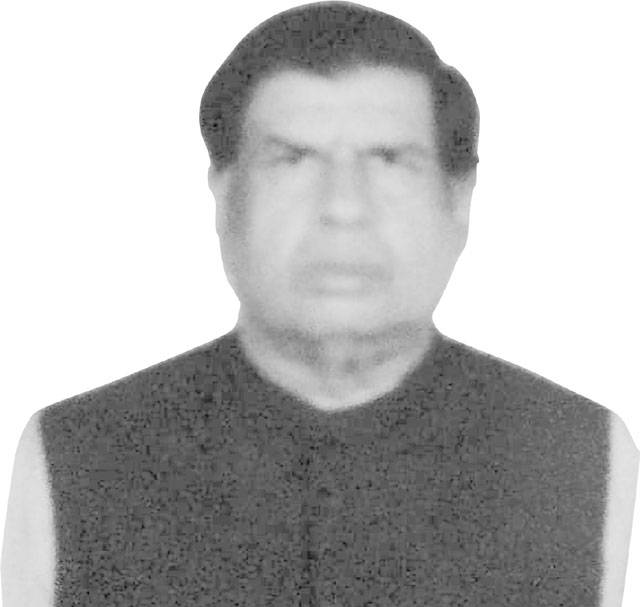A senior educationist of the level of the Vice-Chancellor expressed his serious concern about increasing incidents of suicide amongst students. This warrants the immediate attention of parents, teachers, and all others concerned. It also brings the discussion to the role played by unrealistic academic expectations and ignorance on the part of the parents to say the least.
Research on suicidal ideation was rather limited in Pakistan as the mental illnesses were viewed with shame and disgust. The stigma surrounding mental health has prevented these discussions from entering mainstream discourse at the appropriate levels. Very sadly, the official statistics were more than often unreported but anecdotal evidence suggested that suicide was definitely was on the rise in the country.
Pakistani students, like other countries in South Asia experience immense pressure in performing exceptionally in their educational institutions, from school to university levels regardless of the psychological toll it may be taking. A failure to meet these expectations was typically met with disdain.
Since education is so crucial to achieving upward mobility, a failure to perform well pushed many into the pitfalls of depression. Medical students were especially vulnerable to suicide due to the demanding nature of their studies. Overbearing parents certainly do not help this burning issue either. If some young students choose to confide in their parents or another caregiver, they were, quite unfortunately, asked to suck it up.
Presently, most students in the country somehow lacked access to support systems in the form of mental health counsellors or even a vague sense of community. When the bond that unites an individual with their group is severed, they lose the ability to sustain the pressures that come with life. Most students in the country lack this sense of collective belonging. Long hours in schools, colleges and universities and even longer nights for pulling the exams means that there is no time to develop relationships. With no one left to turn, committing suicide becomes an appealing option; a depressed person is unable to rationalise why they should continue to live on like that. Since students are especially vulnerable to suicide ideation, it is essential for universities to integrate mental health into their curriculum.
In order to ascertain more views, this scribe the other day visited the University of Lahore where coming across young Zunaira Qayyum Khan who said that both boys and girls wanted to end their own lives as there was always stress and loneliness behind these harmful thoughts and fatal decisions. When people do not get due and expected attention and care from their loved ones, they feel depressed in their lives. She always welcomed these people who were having great stress in their life and tried to help them.
As a matter of fact, psychological problems are pretty widespread. According to one somewhat conservative estimate, around 50 million people of all genders and ages suffer from mental disorders. A wide range of psychiatric disorders which were generally reported were depression, substance and alcohol abuse, schizophrenia, bipolar disorder and post-traumatic stress disorder. According to another estimate, a large number of about 36 percent of Pakistanis suffered from anxiety and depression, which was often caused by strained family and friendly relations, feelings of being unfit in the society, the unrealistic economic and political conditions somehow very unfortunately continuously prevailing in the country thus persistently giving rise to unemployment and poverty.
In the backdrop of what has been said above, it was quite appreciable that people like Zuunaira Qaiyyum Khan were opting to study and specialise in clinical psychology for treating their fellow countrymen of all ages and genders. She claimed herself to be an emphatic listener and pointedly stated that she was about to realise her childhood dreams of becoming a successful girl in medical profession was coming to be true as she was very close for becoming a clinical physiologist and the other half will hopefully be accomplished when she becomes well-known throughout Pakistan as an emphatic listener.
Thursday, November 21, 2024
High suicide rates

Former test spinner and umpire Nazir Junior passes away at 78
3:59 PM | November 21, 2024
Suspected Bandit killed in Wazirabad police encounter
3:57 PM | November 21, 2024
Four monkeys cause stir in Karachi
3:55 PM | November 21, 2024
Russia confirms attack with UK-made Storm Shadow missiles on its territory
3:49 PM | November 21, 2024
PSX hits historic 97,000 mark amid positive investor sentiment
3:44 PM | November 21, 2024
-
Hunger crisis to increase in South Sudan, warns UN
-
Hunger crisis to increase in South Sudan, warns UN
-
Pakistan’s judiciary champions climate justice at COP29 in Baku
-
Punjab struggles with persistent smog as Met Office forecast rainfall
-
Punjab residents face escalating smog crisis as pollution levels soar across country
-
Qatar says Hamas 'no longer welcome' in Gulf state
Land of Vigilantes
November 21, 2024
United in Genocide
November 21, 2024
Finally Fighting Back
November 21, 2024
Digital Stagnation
November 20, 2024
Xi’s Red Lines
November 20, 2024
Independent Supreme Court
November 21, 2024
Fat Loss Fantasy
November 21, 2024
Tackle Corruption Within School Boards
November 20, 2024
To Be Opportunistic
November 20, 2024
Democratic Backsliding
November 20, 2024
ePaper - Nawaiwaqt
Nawaiwaqt Group | Copyright © 2024





